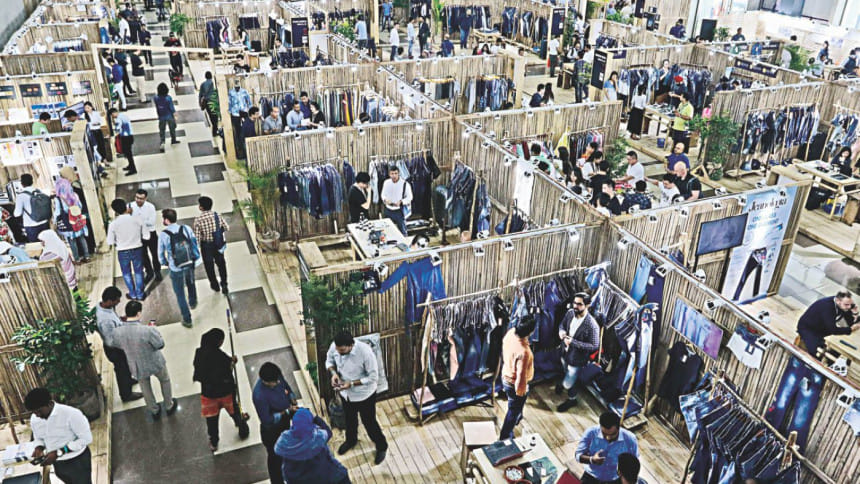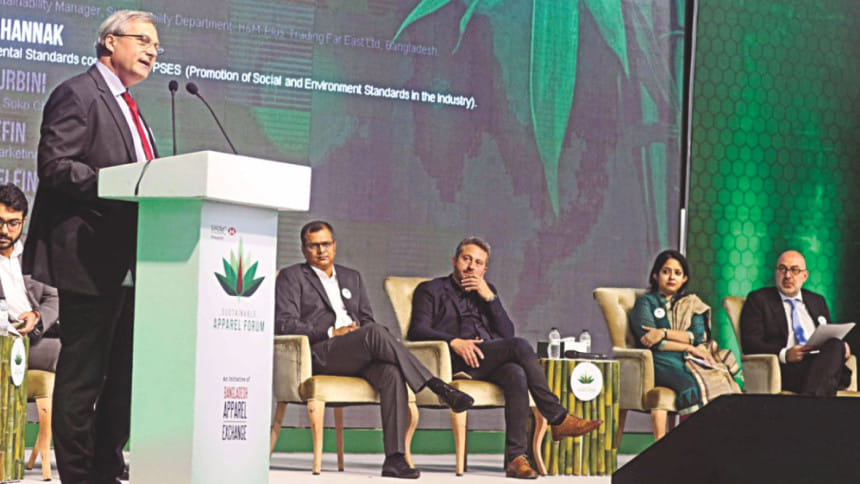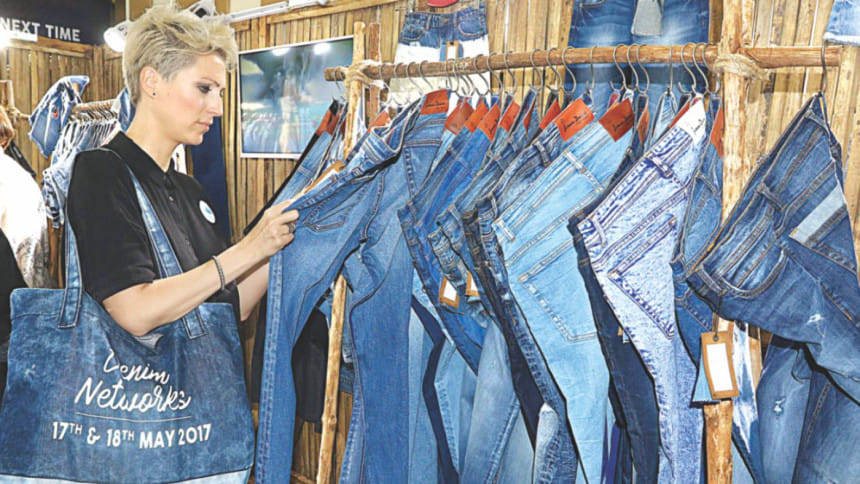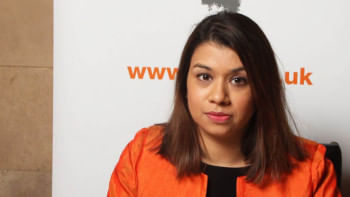EU brands cheerful about local denim

European retailers and brands are upbeat on Bangladeshi value added denim garments due to the high quality of the apparel at competitive prices.
“I see a lot of potential of Bangladeshi denim in the European markets. Bangladesh needs marketing and communication with the European retailers and brands to grab this big denim market,” said Tilmann Wrobel, founder of Monsieur-1, a French design studio.
“Please make the people of Europe understand that Bangladeshi manufacturers have been respecting the workers, Mother Earth, ecology and sustainability in the production of denim goods,” said Wrobel on the sidelines of the sixth edition of the two-day Bangladesh Denim Expo at the International Convention Centre, Bashundhara in Dhaka.
Regarding prices, Wrobel suggested improving quality and design of the denim products for higher value.
Last year, Bangladesh became the largest denim supplier to the European markets, overtaking China.
Although the overall economy in Europe is struggling to revive, there still is a massive market for value added garments, Wrobel said.
In the January-June period of 2016, Bangladesh exported denim products worth €567.97 million to the 28-nation bloc -- enough to secure the highest market share of 21.18 percent.
Currently, Bangladesh has 30 denim mills for which, investments to the tune of $1 billion have been made.
“Considering the potential of the denim market, we have opened a leather patch or denim label factory at Savar. We will start production in the newly established factory from August 15 this year,” said Manfred Slowik, chief operating officer of Germany-based global company Landes. The company has a target to produce 500 million leather patches at the factory in a year for not only Bangladesh, but for other South Asian countries as well, he said.
Patches is an essential accessory for denim trousers. The company, set up on 1,500 square metres of land, has already employed 25 workers, Slowik added.
Bangladesh should have a strong backward linkage industry in denim as the country has been turning a global focal point for this specialised product, said Serge Leon, director of Fashion Production Solutions, an EU-based company.
The Bangladeshi manufacturers should also show that the production of garment items is eco-friendly, he said. Gustaf Asp, country director of Swedish retail giant H&M, said the retailers are ready to pay for high value added garment items.

“Bangladesh is engaged in producing very low-cost items. You need to add value and only then the prices will go up,” Asp said at a panel discussion.
“China has a 39 percent global share in apparel. Chinese wages are way higher than Bangladesh,” Asp said. It is not possible to subsidise the industry for long term, he said adding that Bangladesh will have to go for value addition, innovation in technology, the best practices in renewable energy and renewable materials and non-cotton materials.
Faruque Hassan, vice president of Bangladesh Garment Manufacturers and Exporters Association, said exports are not growing at expected levels because of a decline in consumption of clothing items in the western world.
In 2015, the garment trade declined by more than 7 percent to $445 billion from $483 billion earlier, he added.
“We need to improve the productivity level so that we can perform better in the global fashion markets. At the same time, retailers and brands should also increase the prices of garment items,” Hassan said.
Bangladeshi entrepreneurs supply denim products to major global retailers including Levi's, Diesel, G-Star RAW, H&M, Uniqlo, Tesco, Wrangler, s.Oliver, Hugo Boss, Walmart, and Gap.
The denim sub-sector could play a significant role in achieving the $50 billion export target by the end of 2021, said Mostafiz Uddin, who organises the denim expositions twice a year in Bangladesh.
Annually 2.1 billion pieces of denim are sold globally, according to Bangladesh Denim Expo.
In 2014, the size of the global denim market stood at $56.20 billion, Mostafiz said.

By 2020, the global denim market will reach $64.1 billion, while Bangladesh's denim export is forecasted to reach $7 billion by the end of 2021.
Over 10,000 pre-registered visitors, which have doubled since the last edition, are expected to visit the expo under the theme -- Denim Networks.
“The response from the participants, buyers and brand is huge. I had to expand the space for higher demand of booths and stalls,” the organiser said.
Apart from local exhibitors, businessmen from China, Turkey, Spain, Italy, Pakistan, Japan, San Marino, Germany, Brazil, India and Hong Kong are also participating.
Local companies have occupied nine out of the show's 58 stalls while the rest are being used by the foreign firms and exhibitors.

 For all latest news, follow The Daily Star's Google News channel.
For all latest news, follow The Daily Star's Google News channel. 



Comments